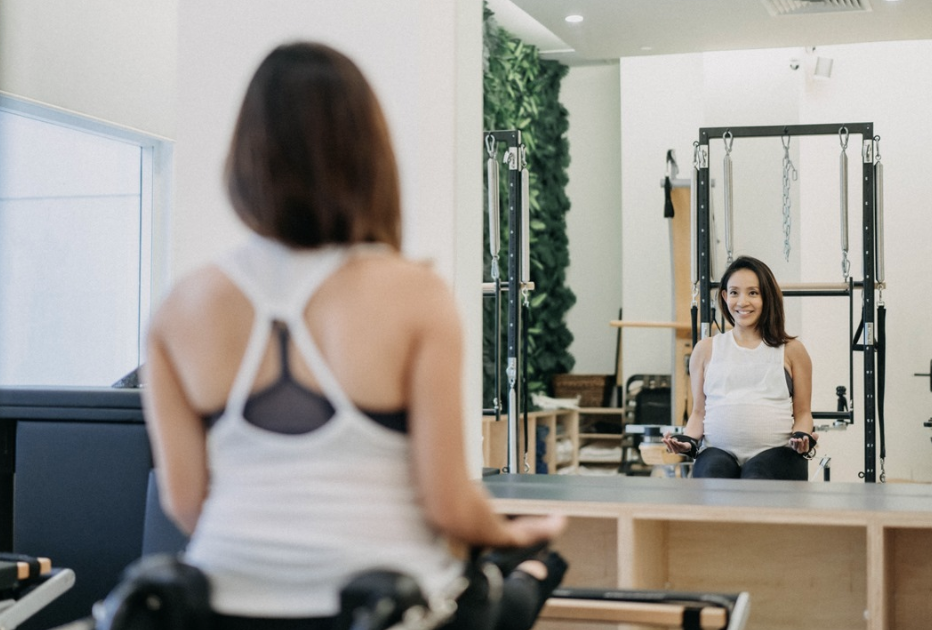The Benefits of Pilates for Pregnancy: Why Women Should Embrace Prenatal Pilates
Pregnancy brings transformative changes to a woman’s body that require both physical and mental adaptation. As these changes unfold, maintaining wellbeing becomes essential for both body and mind. One of the most effective ways to support this transition is through Prenatal Pilates, a tailored form of low-impact exercise designed to meet the unique needs of expectant mums-to-be!
What is Prenatal Pilates?
Prenatal Pilates focuses on improving strength, flexibility, and relaxation while accommodating the physical changes that pregnancy brings to a woman. By emphasising core stability, pelvic floor health, and mindful breathing, it helps prepare women for the demands of childbirth and postpartum recovery. According to a 2016 study published in the Journal of Obstetrics and Gynaecology Research, prenatal exercise, including Pilates, reduces the risk of pregnancy-related complications such as gestational diabetes and preeclampsia.
Research-Backed Benefits of Prenatal Pilates
Strengthens Core Muscles Pregnancy often weakens abdominal muscles, leading to issues such as diastasis recti (separation of abdominal muscles). A study in Women’s Health highlights that exercises like those in Pilates help mitigate this condition by building core strength safely. A strong core also reduces back pain—a common complaint among pregnant women.
Promotes Pelvic Floor Health The pelvic floor supports the uterus, bladder, and bowel. Specialised Pilates classes incorporate targeted movements to strengthen these muscles, which can reduce urinary incontinence, improve labor outcomes, and aid postpartum recovery. Research from the British Journal of Sports Medicine emphasises the role of pelvic floor exercises in improving childbirth outcomes.
Supports Posture and Balance As the baby grows, a shifting center of gravity often results in poor posture and back pain. Pilates works on spinal alignment and balance, helping women maintain better posture throughout pregnancy.
Encourages Mindful Breathing Breathing techniques in Pilates improve oxygen delivery to both mother and baby. According to the American Pregnancy Association, mindful breathing reduces stress hormones, enhancing relaxation and sleep quality—key factors for a healthy pregnancy.
Reduces Pregnancy-Related Pain Pilates relieves discomforts such as lower back pain, sciatica, and pelvic girdle pain. A study in Physical Therapy confirmed that prenatal Pilates decreases pain intensity and improves functional mobility in pregnant women.
Prepares for Labor By simulating movements and positions useful during labor, Pilates helps expectant mothers feel more prepared. Techniques like controlled breathing and muscle endurance training contribute to a smoother delivery experience.
Speeds Postpartum Recovery Maintaining muscle tone during pregnancy accelerates recovery after childbirth. Pilates enhances flexibility, circulation, and core strength, all of which are vital for a quicker postnatal rebound.
Practical Tips for Starting Prenatal Pilates
Consult Your Doctor Always seek medical advice before beginning any exercise routine during pregnancy, particularly if you have underlying health conditions.
Join Prenatal-Specific Classes Opt for prenatal Pilates classes led by certified instructors. These professionals understand pregnancy-specific needs and can provide safe modifications.
Listen to Your Body Avoid overexertion and pay attention to your limits. Stop immediately if you feel pain, dizziness, or discomfort.
Stay Hydrated Pregnancy increases your body’s hydration needs, so drink water before, during, and after your workout.
Focus on Comfort Wear supportive, non-restrictive clothing, and use props like pregnancy pillows or blocks for added comfort during exercises.
Why Choose Pilates Over Other Prenatal Workouts?
While other prenatal exercises, such as swimming or walking, offer benefits, Pilates stands out for its focus on core and pelvic floor health. Its low-impact nature and adaptability make it suitable for women at various fitness levels. Additionally, Pilates emphasises the mind-body connection, prioritising emotional well-being alongside physical health.
Final Thoughts
Prenatal Pilates is a holistic way to prepare for the journey of motherhood. By building strength, enhancing flexibility, and promoting relaxation, it equips women with the tools to navigate pregnancy and childbirth with confidence. The evidence-backed benefits of Pilates—ranging from pain relief to better labor outcomes—make it an invaluable part of any prenatal fitness routine.
If you’re considering incorporating Pilates into your pregnancy journey, join a prenatal class led by an experienced instructor. Not only will you reap physical benefits, but you’ll also find a supportive community of mothers-to-be sharing similar experiences.
How Breathe Pilates Can Help You of Why Choose Breathe Pilates
At Breathe Pilates, we have over 10 years’ of experience helping thousands of pregnant women in Singapore to help prepare their body for baby with the help of prenatal pilates. We offer both private prenatal sessions with our experienced instructors or you can join our ‘Preggie Bellies’ group classes, these are small group classes of no more than 6 people in a class where you can meet and train with other mums-to-be in an intimate and warm setting.


